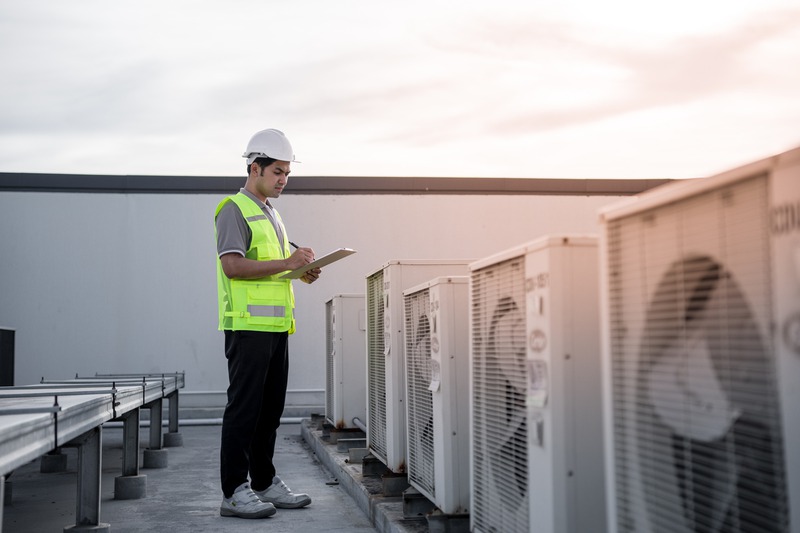If you’re embarking on home renovation or clearing out some long-neglected clutter, you’ve probably considered renting a dumpster. It’s a convenient way to toss out all that unwanted stuff in one fell swoop without multiple trips to the dump. But before you start chucking everything willy-nilly, it’s important to know what exactly can and can’t go in that rented dumpster. This guide will help you learn the dos and don’ts of dumpster use, so you and the environment stay in the clear.
Identifying Dumpster Restrictions
It’s essential to understand that not all items are allowed in a rented dumpster. If you’re using a Pasco County, FL dumpster rental, be aware that these services often have specific guidelines to ensure safety and environmental protection. Tossing prohibited items into a dumpster risks fines and potential harm to the environment. Here’s what you need to know.
General Waste That’s Typically Allowed
For the most part, rented dumpsters are used for non-hazardous waste. Here’s a quick rundown of items that generally cut:
-
Household junk (old furniture, toys, clothes)
-
Construction debris (wood, drywall, roofing materials)
-
Yard waste (branches, leaves, soil)
-
Small appliances (blenders, microwaves)
-
Paper and cardboard
While this list covers the basics, always verify with the dumpster rental service if you’re unsure. Local regulations can also impact what can be disposed of in a rented dumpster.
Items Typically Prohibited
Some items pose environmental risks or are hazardous, so they’re prohibited in most dumpster rentals. Stay clear of these to avoid potential fines and environmental harm:
-
Hazardous materials (paint, batteries, asbestos)
-
Chemicals and solvents
-
Medical waste
-
Tires and auto parts
-
Large appliances (refrigerators, washing machines)
-
Electronics (TVs, computers)
Proper disposal methods for these items vary, so it’s crucial to handle them according to local laws or return them to recycling centers or manufacturers where feasible.
Special Considerations for Specific Items
Here, we’ll look into special waste types that may require additional thought before disposal.
Yard Waste
When tackling a big yard clean-up project, especially during peak season, it’s essential to have an efficient way to manage all the debris. From branches and leaves to grass clippings, the amount of waste can quickly add up. If you’re in the Pinellas County area and need a convenient solution, a Clearwater, FL dumpster rental can be a great option. This service ensures you can easily dispose of yard waste, keeping your property tidy and relieving the hassle of multiple trips to the local dump.
Construction Debris
Remodeling generates construction waste, which generally fits comfortably in a dumpster. The types of debris allowed can include wood, tiles, and metal scraps. Just ensure there’s no lead-based paint or other hazardous materials, which may require separate disposal channels.
Electronics
Most dumpsters don’t allow e-waste, given the hazardous materials they contain. Electronics like TVs and computers could sometimes be recycled or given back to manufacturers for disposal. Depending on which area you’re situated, this is a rule of thumb across rented dumpster services.
Appliances
Large household appliances, such as refrigerators and washing machines, often require special disposal due to their size and components, such as Freon. Before junking them, check if your rental company offers an upgrade option for appliance-friendly dumpsters.
Tips for Preparing Items for Disposal
Navigating dumpster rental guidelines can sometimes feel like a maze, but preparing your items for disposal doesn’t have to be overwhelming. Here are some tips to make the process a bit easier:
Sort Items
Before you dump everything in the dumpster, categorize items based on material types: wood, metal, plastics, etc. Sorting helps maximize space and ensures compliance with disposal laws.
Read Contract Terms
Before tossing your stuff, thoroughly read your rental contract. Some services, like those offering dumpster rental in Hillsborough County, FL, may have stringent guidelines on what can be thrown away, including potential extra fees for certain materials.
Check Local Disposal Regulations
Community regulations can vary, leaving different states or counties with unique disposal guidelines. Local government websites often have resources to help you properly dispose of items confined by regulation.
Why Following Rules is Important
Adhering to dumpster rental rules isn’t just about avoiding fines. It’s about prioritizing environmental responsibility and community safety, too.
Environmental Impact
Irresponsible disposal of prohibited materials can cause harm to ecosystems and wildlife. By following rules, you contribute to a safer, cleaner environment.
Recycle Whenever Possible
Recycling centers provide a responsible outlet for things not fit for dumpsters, such as electronics or batteries. They break materials down for reuse, reducing landfill reliance and promoting sustainable practices.
What to Do with Prohibited Items
If you have items on the prohibited list, don’t worry. There are alternative ways to dispose of them responsibly.
Hazardous Waste Facilities
Many communities offer facilities that specialize in hazardous waste disposal. They ensure safe and legal disposal, often free of charge or at nominal fees.
Recycling Centers
For items like electronics or tires, your local recycling center may offer drop-off options specifically catered to reuse or break down these materials sustainably.
Special Pickup Services
Some waste management services provide special pickup days for items like large appliances or electronic waste, ensuring they are processed correctly.
Final Thoughts
Renting a dumpster is a highly efficient way to dispose of unwanted materials from your home or business. However, to ensure a smooth experience, it’s crucial to adhere to specific guidelines and know the distinction between permissible and prohibited items. With this knowledge, you can take advantage of efficient waste disposal while keeping the environment in mind. So, next time you have a massive clean-out, remember these guidelines, and you’ll be sifting through that clutter effectively in no time.





